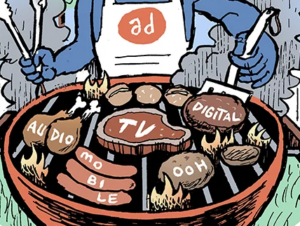 Here’s today’s AdExchanger.com news round-up… Want it by email? Sign-up here.
Here’s today’s AdExchanger.com news round-up… Want it by email? Sign-up here.
Traffic Tidal Wave
Many publishers still regard programmatic as a threat, but when news breaks fast and a site captures a wealth of traffic, it’s impossible for direct sales to keep up to take advantage of it. Case in point this past week: the controversy over Notre Dame star linebacker Manti Te’o that broke on Gawker Media’s Deadspin and OWN’s Oprah Winfrey interview with disgraced cyclist Lance Armstrong. As AdAge’s Jason Delrey notes, Gawker doesn’t work with third party ad sales providers (save retargeter Criteo, on past occasions). “Because we don’t run any networks or remnant inventory, it’s impossible for us to monetize these spikes unless we’re already oversold,” Gawker Media Chief Advertising Officer Andrew Gorenstein told AdAge, saying that the company was exploring a private exchange. Read the rest.
Havas Streamlines
Havas is retiring its Media Contacts and MPG agency brands, and folding their offices and staffers into a new unit called Havas Media — which has its counterpart in Havas Creative. It’s all about preparing for the omni-channel future, says Dominique Delport, CEO of the new division: “Our aim is to form a new company that lies at the intersection of the traditional international holding groups and the new style of innovative, digital companies.” Press release. And more in Mediapost.
A Little Less Addressability
The keyword referrals coming from search engines these days are becoming steadily more opaque for publishers as browsers say they are looking to provide privacy protections for their users. Google’s Chrome is the latest – read the Google Chrome blog post. This is tough for publisher platforms looking to use organic keyword referrals as a way to address audience with display media. Danny Sullivan points out that “not provided” will be the phrase that shows up in analytics programs. Read more on the history of search referral blocking from him on Marketing Land.
Content Marketing Competition
On TechCrunch, Ryan Lawler reports that video recommendation compnay Taboola is having a “banner year.” Wait – no banners yet for Taboola, but it seems that the company is moving to compete with Outbrain, among others, as they’ll shift their product to recommend videos and more. Lawler adds that Taboola served “nearly 1.5 billion video recommendations per day by year’s end. With all of its growth in video recommendations, the company also grew revenue by more than 750 percent in 2012.” Read more.
Addressable CES
Publicis VivaKi MD Marco Bertozzi returns to his personal blog post-CES and offers his observations of the show from an ads perspective. He writes, “So, we have a seamless technology ecosystem developing, let’s look on the bright side and suggest that broadcasters do give up their old school methods and let us all do what we want. There will be two implications for the advertising business. The first is that measurement of viewership will become an impossible task without some improvement in the technology tracking it – a big ask. And that leads neatly to the second – addressable TV advertising.” Read it all. Also, get GroupM’s CES report on The Makegood.
Social Sign-In Slump
eMarketer aggregates some data on the “Social Sign-In” … you know, when a website asks you to login with your Facebook ID, for example. From eMarketer: “According to December data from Gigya […] 47% of US internet users have never logged in to a website or mobile app using social sign-in.” Read more. Beyond the connection to privacy concerns, this should also mean less audience data for the social platforms to target content, ads and commerce.
You’re Hired!
- Peter Liguori Named CEO of Tribune Company – NY Times’ Media Decoder blog
But Wait. There’s More!
- SVG Media Launches Data Backed Display Ad Network Velocity – MediaNama (India)
- Samsung’s Predicament – Chris Dixon
- Some Thoughts On The Future Of Search – Bijan Sabet
- Marketing analytics and why Google matters – SAS Customer Analytics blog













